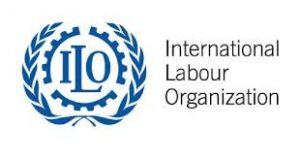Daily Current Affairs for Government Exams:
Today Current Affairs: 14th August 2020 for UPSC IAS exams, State PSC exams, SSC CGL, State SSC, RRB, Railways, Banking Exam & IBPS, etc
Table of Contents
Contents:
- Arunachal groups demand 6th Schedule status::
- Naval Innovation and Indigenisation Organisation (NIIO).
- Israel and the United Arab Emirates (UAE) :
- Universal Ratification to Child Labour Convention:
- Line of Credit (LoC) :
- Other important current affairs:
1. Arunachal groups demand 6th Schedule status::

The revival of the demand for two autonomous councils has made political parties and community-based groups call for bringing the entire Arunachal Pradesh under the ambit of the Sixth Schedule or Article 371 (A) of the Constitution.
- Currently, Arunachal Pradesh is under the Fifth Schedule that “does not provide special rights for the indigenous communities” unlike the Sixth Schedule.
- Many political parties have been demanding the inclusion of Arunachal Pradesh in the 6th Schedule for making the Arunachalees owner of all-natural resources instead of being protectors only.
- Inclusion of the state under the Sixth Schedule would enable the state to own the legitimate ownership rights over its own natural resources and make it self sufficient without having to depend too much on central grants.
The 6th Schedule:
- The Sixth Schedule currently includes 10 autonomous district councils in four northeastern States — Assam, Meghalaya, Mizoram, and Tripura.
- Passed by the Constituent Assembly in 1949, it seeks to safeguard the rights of the tribal population through the formation of Autonomous District Councils (ADC).
- This special provision is provided under Article 244(2) and Article 275(1) of the Constitution.
Key provisions:
- The governor is empowered to organize and re-organise the autonomous districts.
- If there are different tribes in an autonomous district, the governor can divide the district into several autonomous regions.
- Composition: Each autonomous district has a district council consisting of 30 members, of whom four are nominated by the governor and the remaining 26 are elected on the basis of adult franchise.
- Term: The elected members hold office for a term of five years (unless the council is dissolved earlier) and nominated members to hold office during the pleasure of the governor.
- Each autonomous region also has a separate regional council.
- Powers of councils: The district and regional councils administer the areas under their jurisdiction.
- They can make laws on certain specified matters like land, forests, canal water, shifting cultivation, village administration, the inheritance of property, marriage, and divorce, social customs and so on.
- But all such laws require the assent of the governor.
- Village councils: The district and regional councils within their territorial jurisdictions can constitute village councils or courts for trial of suits and cases between the tribes. They hear appeals from them. The jurisdiction of the high court over these suits and cases is specified by the governor.
- Powers and functions: The district council can establish, construct or manage primary schools, dispensaries, markets, ferries, fisheries, roads, and so on in the district.
- It can also make regulations for the control of money lending and trading by non-tribals. But, such regulations require the assent of the governor. The district and regional councils are empowered to assess and collect land revenue and to impose certain specified taxes.
- Exceptions: The acts of Parliament or the state legislature do not apply to autonomous districts and autonomous regions or apply with specified modifications and exceptions.
- The governor can appoint a commission to examine and report on any matter relating to the administration of the autonomous districts or regions. He may dissolve a district or regional council on the recommendation of the commission.
2. Naval Innovation and Indigenisation Organisation (NIIO).:

Defence Minister Rajnath Singh launched the Naval Innovation and Indigenisation Organisation (NIIO).
- The NIIO puts in place dedicated structures for the end-users to interact with academia and industry towards fostering innovation and indigenisation for self-reliance in defence.
- The Draft Defence Acquisition Policy 2020 (DAP 20) rolled out by the Defence Ministry last month envisaged the establishment of Innovation and Indigenisation Organisation by the Service Headquarters.
- The NIIO is a three-tiered organisation.
- Naval Technology Acceleration Council (N-TAC) will bring together the twin aspects of innovation and indigenisation and provide apex level directives.
- A working group under the N-TAC will implement the projects.
- A Technology Development Acceleration Cell (TDAC) has also been created for induction of emerging disruptive technology in an accelerated time frame.
- A compendium of Indian Navy’s Indigenisation perspective plans titled ‘SWAVLAMBAN’ was also released on the occasion.
3.Israel and the United Arab Emirates (UAE) :

Recently, the President of the USA has announced that Israel and the United Arab Emirates (UAE) have agreed to establish full diplomatic ties as part of a deal to halt the annexation of occupied land sought by the Palestinians for their future state.
- Both the UAE and Israel are the USA’s close allies in West Asia.
- The UAE has become the first Gulf Arab state to do so and only the third Arab nation to have active diplomatic ties with Israel.
- Egypt made a peace deal with Israel in 1979, followed by Jordan in 1994.
- Under the deal, Israel would suspend its plans to annex large parts of the occupied West Bank.
- The West Bank is sandwiched between Israel and Jordan. One of its major cities is Ramallah, the de facto administrative capital of Palestine.
- Israel took control of it in the Six-day Arab-Israeli war, 1967 and has over the years established settlements there.
- A joint statement from the USA, the UAE and Israel has been issued which says that delegations would meet in the coming weeks to sign deals on direct flights, security, telecommunications, energy, tourism and health care.
- Both nations will also partner on fighting the Covid-19 pandemic together.
- It remains unclear what prompted Israel and the UAE to make the announcement now.
- In June 2020, the UAE’s ambassador to the USA warned that Israel’s plan to annex the Jordan Valley and other parts of the occupied West Bank would upend Israel’s efforts to improve ties with Arab nations.
Background:
- Formed in 1971, the UAE is a USA-allied federation of seven sheikhdoms on the Arabian Peninsula which did not recognise Israel over its occupation of land home to the Palestinians.
- The UAE relied on white-collar (people who perform professional, desk, managerial or administrative work) Palestinians in creating its nation and maintained its stance that Israel should allow the creation of a Palestinian state on land it seized in the 1967 war.
- In recent years, ties between Gulf Arab nations and Israel have quietly grown, in part over their shared enmity of Iran and the Lebanese militant group Hezbollah.
- The UAE also shares Israel’s distrust of Islamist groups like the Muslim Brotherhood and the militant group Hamas that holds the Gaza Strip.
Impact on the UAE:
- The deal smoothens the UAE’s international campaign to be seen as a beacon of tolerance in the Middle East despite being governed by autocratic rulers.
- It puts the UAE out first in a regional recognition race among neighbouring Gulf Arab states.
Impact on Israel:
- The announcement justifies the year-long claims of Israeli Prime Minister Benjamin Netanyahu that his government enjoys closer ties to Arab nations than publicly acknowledged.
- The deal gives Netanyahu a domestic boost at a time when Israel’s coalition government is facing infighting and the possibility of early elections.
Impact on the USA:
- The recognition grants a diplomatic win to the USA President Donald Trump ahead of the November election.
- Neither his efforts to bring the war in Afghanistan to an end nor efforts to bring peace between Israel and the Palestinians have been successful yet.
4.Universal Ratification to Child Labour Convention:

Recently, the International Labour Organization (ILO)’s Convention on Worst Forms of Child Labour also known as Convention No. 182 received universal ratification after the Kingdom of Tonga ratified the same.
Universal Ratification:
- It means ratification by all the members of an organization. Convention No. 182 has received ratification from all the 187 members of ILO.
Child Labour:
- The ILO defines child labour as work that deprives children of their childhood, their potential and their dignity, and that is harmful to their physical and mental development.
- In the least developed countries, slightly more than one in four children (ages 5 to 17) are engaged in labour that is considered detrimental to their health and development.
- The eradication of child labour is part of the Sustainable Development Goal Target 8.7.
- The UN General Assembly has declared 2021 as the year for the elimination of child labour.
Convention No. 182:
- The convention was adopted by ILO member states meeting in Geneva in 1999.
- It aims to protect children from the worst forms of child labour, which include slavery, prostitution, trafficking, deployment of children in armed conflict and other conditions that compromise their overall well-being.
5.Line of Credit (LoC) :

India announced a slew of new connectivity measures for the Maldives, including air, sea, intra-island, and telecommunications in an effort to help the Indian Ocean Islands deal with the economic impact of the COVID-19 pandemic.
Initiatives announced:
- Air connectivity “bubble” for travel.
- A direct ferry service.
- A submarine cable for telecom connectivity.
- Assistance for the Greater Male Connectivity project (GMCP) to connect Male to three neighbouring islands- Villingili, Thilafushi, and Gulhifahu islands.
Background:
- India will support the implementation of the GMCP in the Maldives, through a financial package consisting of a grant of USD 100 million and a new Line of Credit (LoC) of USD 400 million.
- The GMCP would be the “largest civilian infrastructure project in the Maldives”.
Line of Credit (LOC):
- The Line of Credit is not a grant but a ‘soft loan’ provided on concessional interest rates to developing countries, which has to be repaid by the borrowing government.
- The LOCs also helps to promote exports of Indian goods and services, as 75% of the value of the contract must be sourced from India.
Other important current affairs:
1. Odisha’s Athagarh Forest Division has started casting seed balls (or bombs) inside different reserve forest areas to enrich food stock for wild elephants.
- This has been done to prevent man-elephant conflict.
- On the eve of World Elephant Day 2020, the Ministry for Environment, Forest and Climate Change has launched a portal on Human-Elephant Conflict ‘Surakhsya’.
- Further, the Government has taken initiative for fodder and water augmentation in forest areas so that animals get food and water in forest areas and not come outside. LiDAR technology is being used for the same.
- A seed bomb is a little ball generally made up of a combination of compost, clay and seeds.
- The compost and clay act as a carrier for the seeds so they can be launched over walls or fences and into inaccessible areas such as wasteland or railways.
- The compost offers nutrients for the seeds to germinate and grow strong during their infancy and the clay binds the seed bomb, making it hard enough not to break when it hits the ground.
- It is used in re-vegetation and reforestation of the fragile ecosystems.
- The plantation technique wherein seed balls are sprayed using aerial devices, including planes, helicopters or drones, is known as aerial seeding.
2. A Price Monitoring and Resource Unit (PMRU) has been set up in Karnataka under the aegis of National Pharmaceutical Pricing Authority (NPPA), Department of Pharmaceuticals, Ministry of Chemicals and Fertilizers.
- Price Monitoring and Resource Units is a registered society and shall function under the direct control and supervision of the State Drug Controller of respective states.
- The unit shall be funded by NPPA for its recurring and non-recurring expenses.
- Functions:
- Help NPPA and State Drug Controller in ensuring the availability and accessibility of medicines at affordable prices.
- Organise seminars, training programs and other information, education and communication (IEC) activities in the areas of availability and affordability of medicines for all.
- Collect samples of medicines, collect and analyse data and make reports with respect to availability and over-pricing of medicines for taking action under the provisions of Drug Price Control Order (DPCO).
3. In a world battered by the COVID pandemic, the demand for healthy and safe food is already showing an upward trend and hence this is an opportune moment to be captured for a win-win situation for our farmers, consumers and the environment.
- Organic farming in India:
- India ranks first in a number of organic farmers and ninth in terms of area under organic farming.
- Sikkim became the first State in the world to become fully organic and other States including Tripura and Uttarakhand have set similar targets.
- North East India has traditionally been organic and the consumption of chemicals is far less than rest of the country.
- Similarly, the tribal and island territories are being nurtured to continue their organic story.
- The major organic exports from India have been flax seeds, sesame, soybean, tea, medicinal plants, rice and pulses.
- Government initiatives to support organic farming:
- Mission Organic Value Chain Development for North East Region (MOVCD) and Paramparagat Krishi Vikas Yojana (PKVY) launched in 2015 to encourage chemical-free farming.
- Both these schemes are promoting certification under the Participatory Guarantee System (PGS) and the National Program for Organic Production (NPOP) respectively targeting domestic and exports markets.
4. An Offshore Patrol Vessel (OPV) for the Indian Coast Guard was launched and re-christened as Indian Coast Guard Ship ‘Sarthak’.
- Sarthak is the 4th in the series of five OPVs deployed by the Coast Guard to enhance maritime security.
- It has been designed and built indigenously by Goa Shipyard Limited.
- The Ship is fitted with state-of-the-art Navigation and Communication equipment, sensor and machinery.
- The ship is designed to embark and carry a twin-engine helicopter, four high-speed boats and one inflatable boat for swift boarding and Search & Rescue operations.




